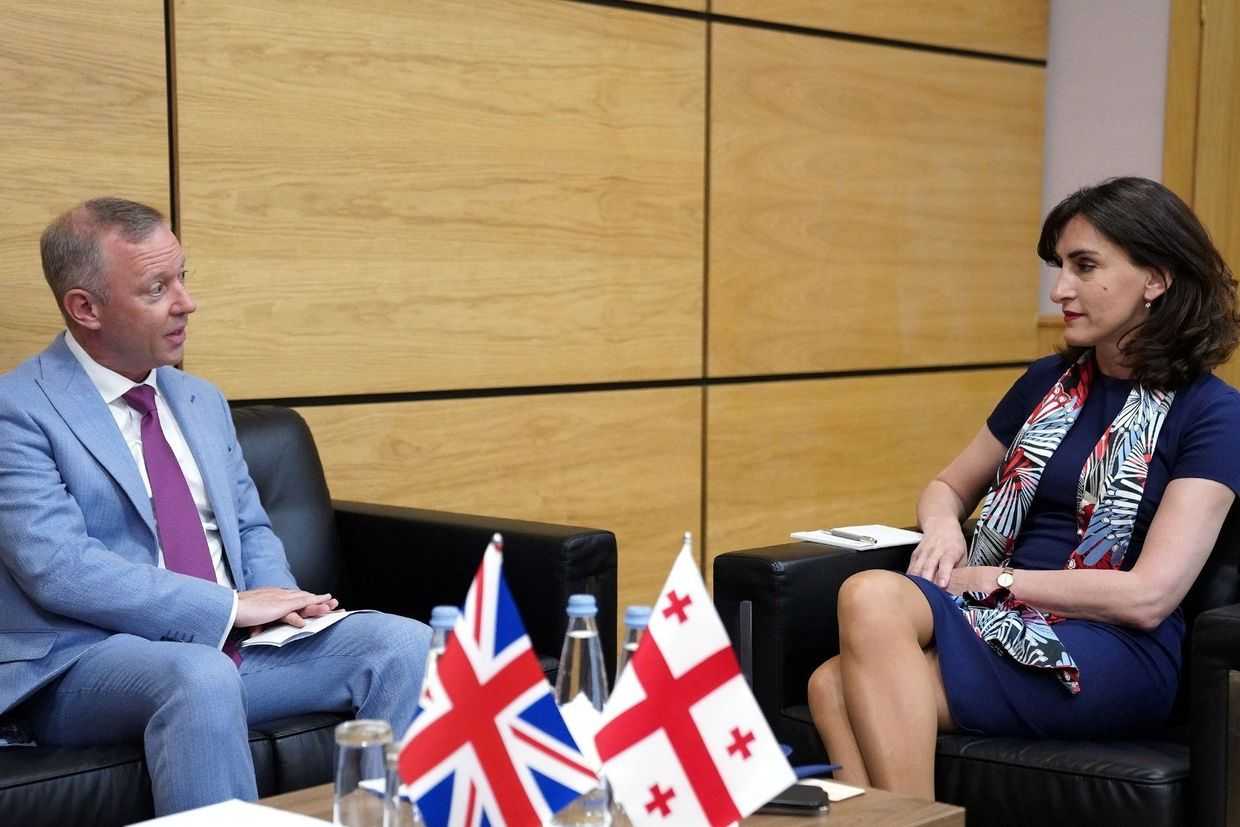
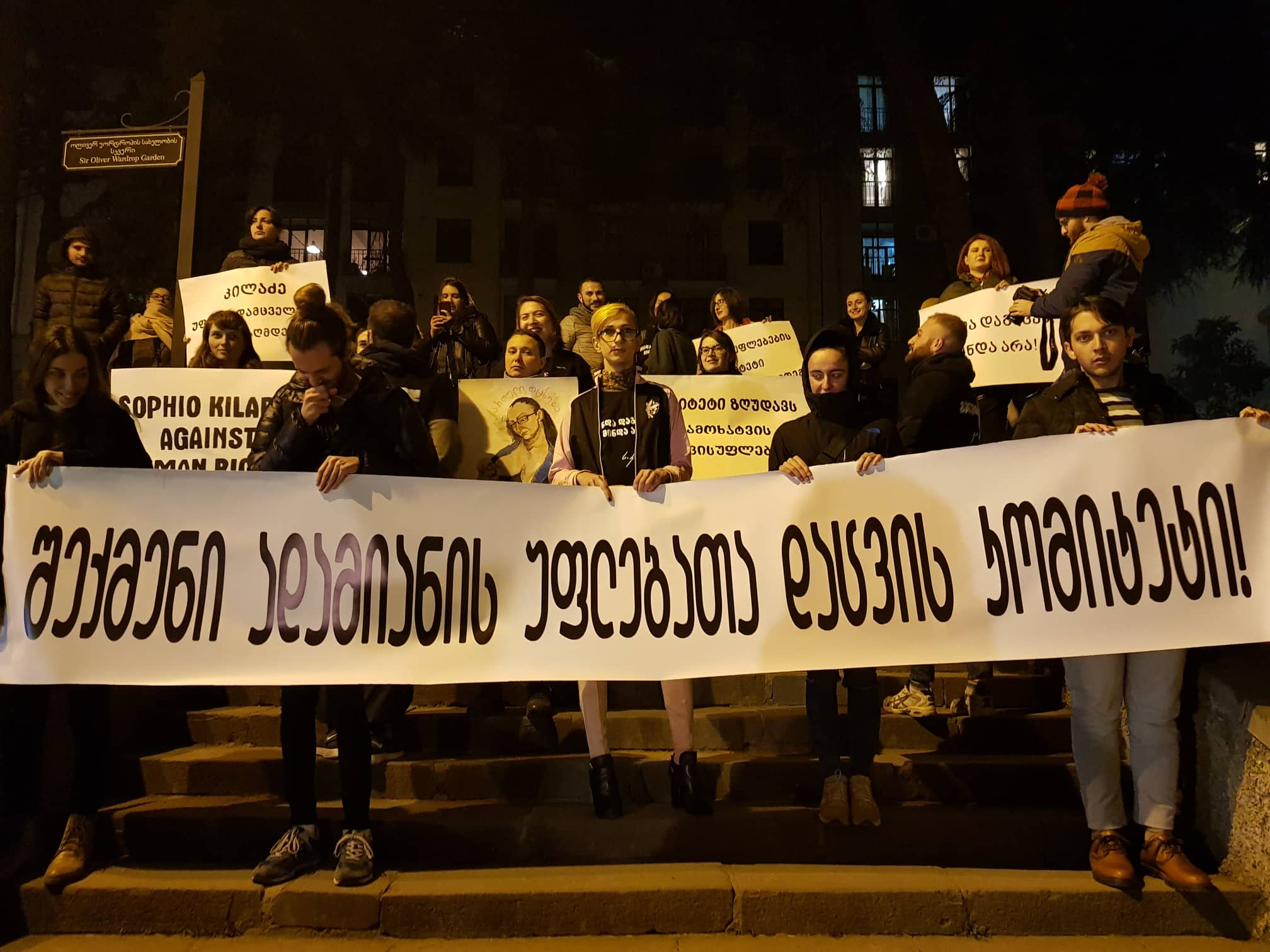
The head of Georgia’s Human Rights Committee, Sopo Kiladze, is facing calls for her resignation — the second time activists have demanded she go in under a year.
Activists from around a dozen human rights groups, including the Equality Movement, Georgian Women’s Movement, and Partnership for Human Rights, gathered outside the Tbilisi parliament building on Friday.
In their event description on Facebook, the groups said Kiladze’s ‘personal attitude towards fundamental human rights makes her unfit for the position’, specifying that she was ‘homophobic and justifies the oppression of vulnerable groups’.
Calls for her resignation resurfaced after Kiladze stormed out of a meeting on a proposed Children’s Rights Code on 4 February.
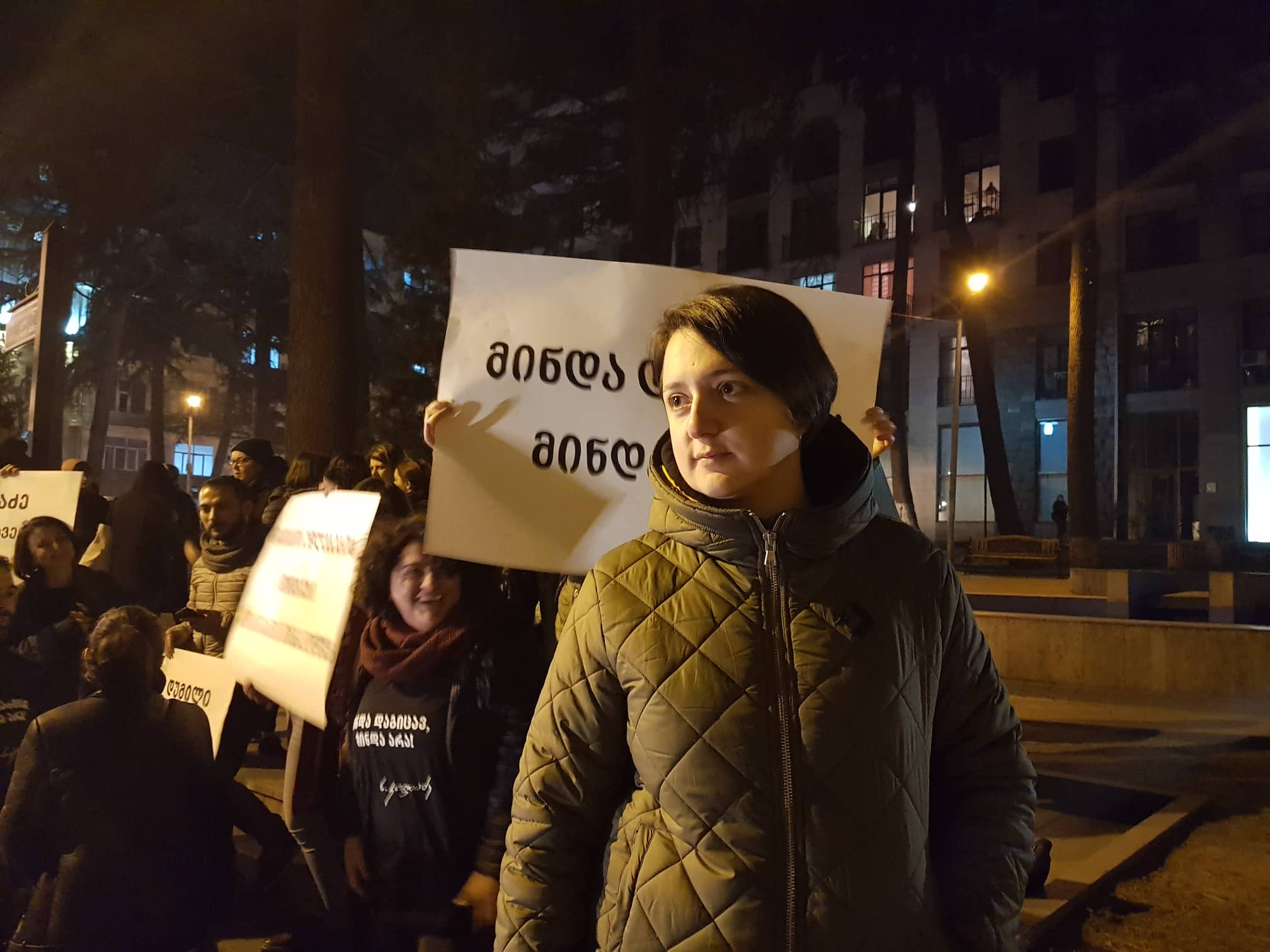
During the meeting, Kiladze got into a heated debate with Ana Abashidze, the head of Tbilisi-based rights group the Partnership for Human Rights, who she accused of ‘being instructed to play a destructive role’ regarding the Children’s Rights Code in order to cause a media scandal.
‘I’ll give you some advice: It will be good if you and [your colleague] stop privately insulting MPs on Facebook’, Kiladze told Abashidze in front of the meeting.
Responding to the accusation she had been instructed to create a scandal, Abashidze accused Kiladze of ‘gossiping’.
‘As for the criticism — you, as an MP, have an obligation to tolerate it. If you can’t handle it, you should be [working] elsewhere. Stop gossiping, it’s shameful’, she said, after which Kiladze left the meeting.
Why human rights activists think she’s not fit for her position
Abashidze told OC Media that despite previous calls from NGOs for Kiladze to resign, she continued to attack human rights defenders.
‘Not only does she make false accusations she also creates an insulting and hostile environment when human rights are discussed. In times like these, she uses her authority as the head of the committee to do her best to mute the critical voices’, Abashidze said.
She said that other MPs on the committee do not rebuke her behaviour, which damages Parliament’s reputation.
‘I cannot recall positive examples [of her helping out vulnerable groups], but I remember negative ones where she spoke to one of the most vulnerable groups in Georgia, LGBT people, and told them she’d only protect them if she wanted to. This sums up her worldview’, Abashidze said.
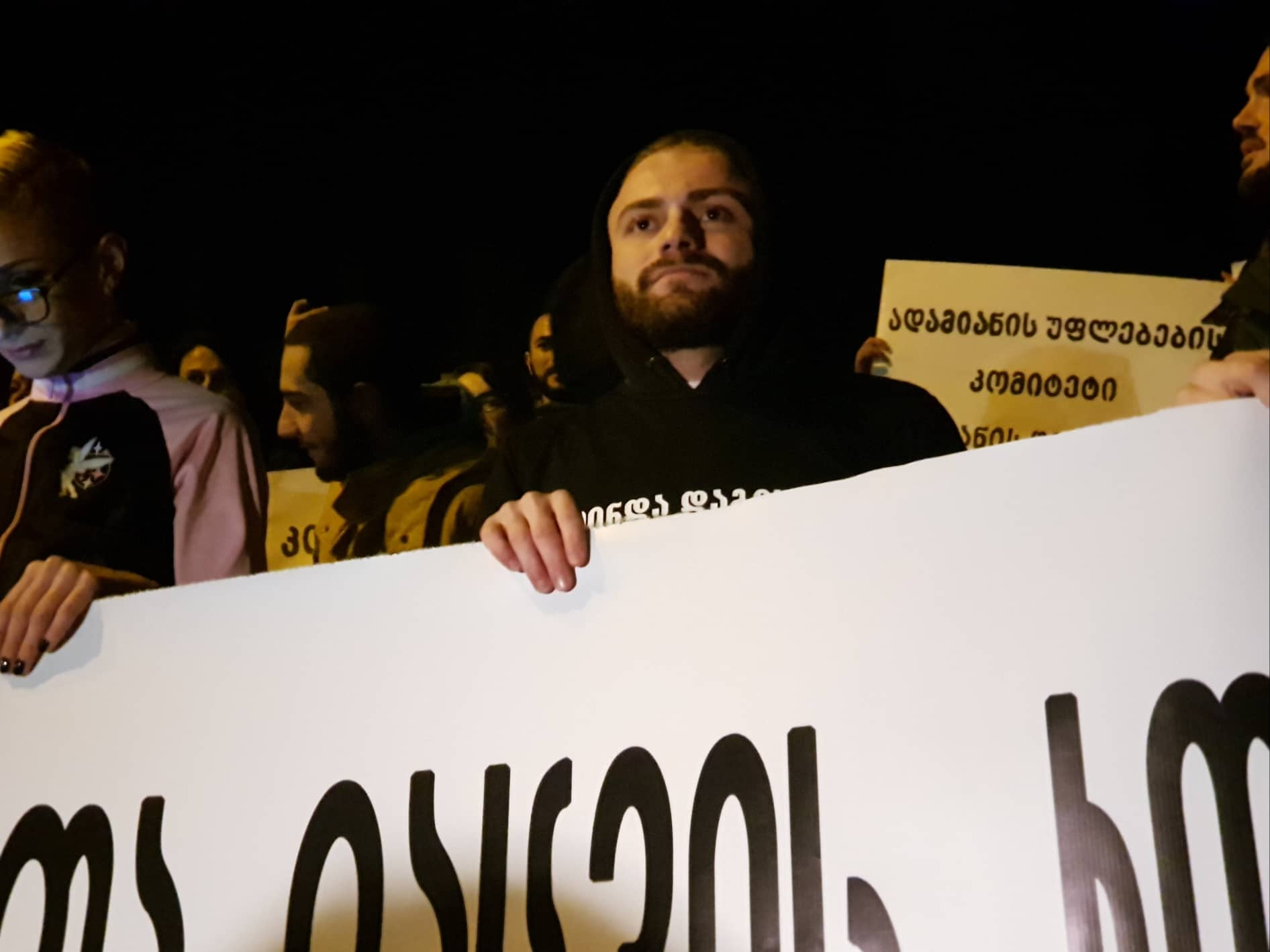
Tazo Sozashvili, from queer rights group the Equality Movement, told OC Media that he could not recall a single time Kiladze met with queer rights activists.
‘I think there’s never been such a meeting because we all know her attitude towards queer people, which she always displays. She thinks it’s up to her to decide who to protect and who not to, while the Human Rights Committee is supposed to be working closely with vulnerable groups of people and trying to make their lives easier. In her case, we see that it’s quite the opposite’, Sozashvili said.
Davit Subeliani, an activist from drug-policy reform group the White Noise Movement, said that becoming head of the committee was ‘simply a career advancement’, for Kiladze.
‘Ask human rights organisations or minorities and they will tell you that going to the Human Rights Committee is a huge challenge because we expect Kiladze to insult us or create a hostile environment’, Subeliani told OC Media.
‘Instead of doing our job, we tend to get defensive when she’s around. It’s an unhealthy situation which the ruling party has to take responsibility for.’
Subeliani said Kiladze had never contributed to making drug users’ lives better.
‘We get the feeling that deep down, she hates these people [drug users] and sees them as burdens on society. We have had this feeling many times’, Subeliani told OC Media.
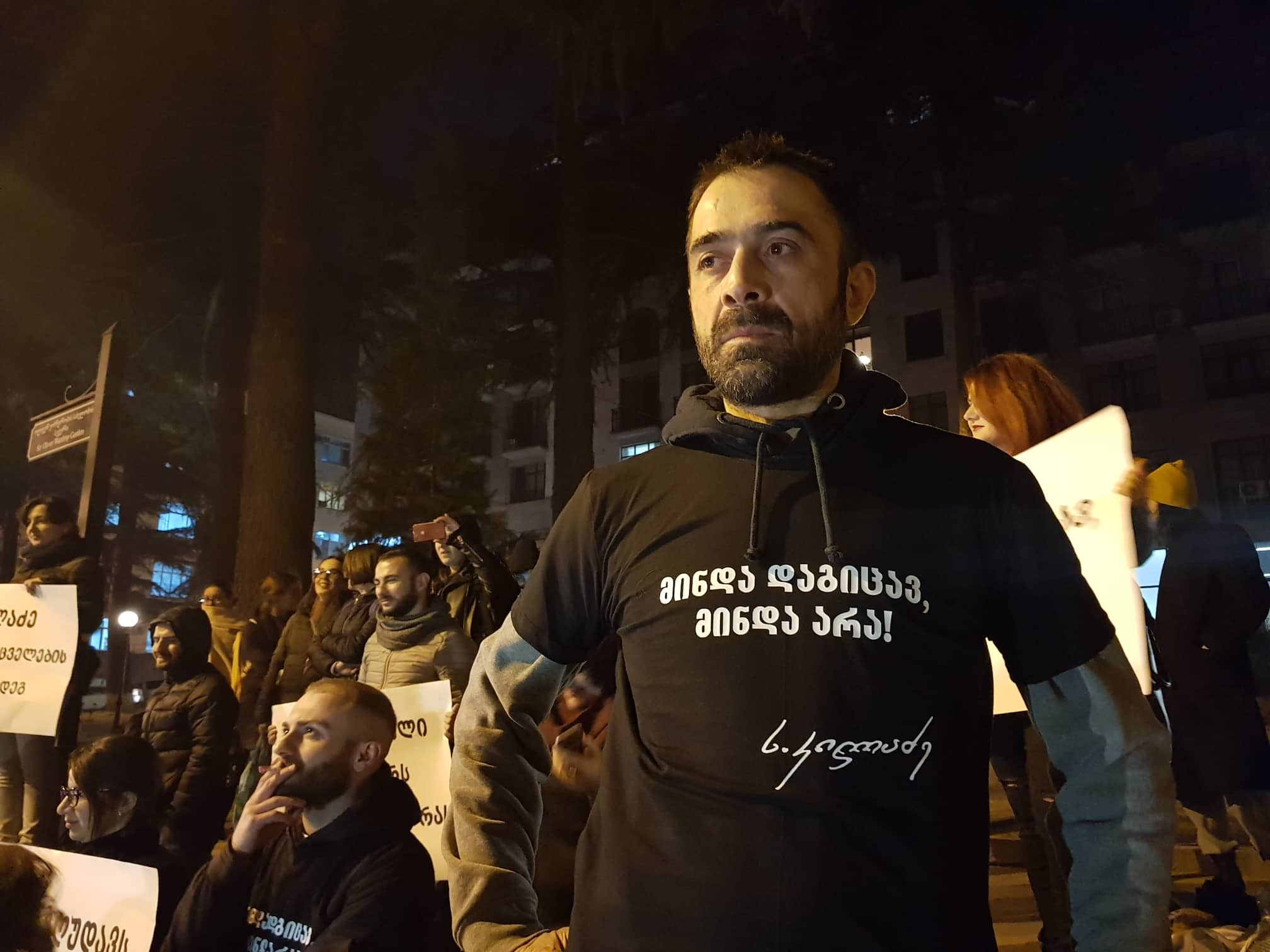
Prior protests and accusations of homophobia
Kiladze faced calls to resign from rights groups in May 2018 after she refused to mark International Day Against Homophobia, Transphobia, and Biphobia on behalf of the Human Rights Committee, despite it being included in the committee’s action plan.
[Read on OC Media: Georgian parliamentary committee pledges to mark day against homophobia]
The action plan promised to draw public attention to homophobia every year on 17 May.
‘Marking human rights days will contribute to solidarity with people whose rights have been violated and to raising awareness regarding these issues’, the document said.
Kiladze told Liberali on 30 April that the committee no longer intended to mark the day and refused to clarify the reason why. ‘We will not mark it, it’s up to us to decide’, Kiladze said.
The following day, members of the Equality Movement and other activists gathered outside the Parliament building to demand that Kiladze resign.
[Read more about the protest against Kiladze on OC Media: Human rights committee under fire in Georgia over U-turn on queer rights]
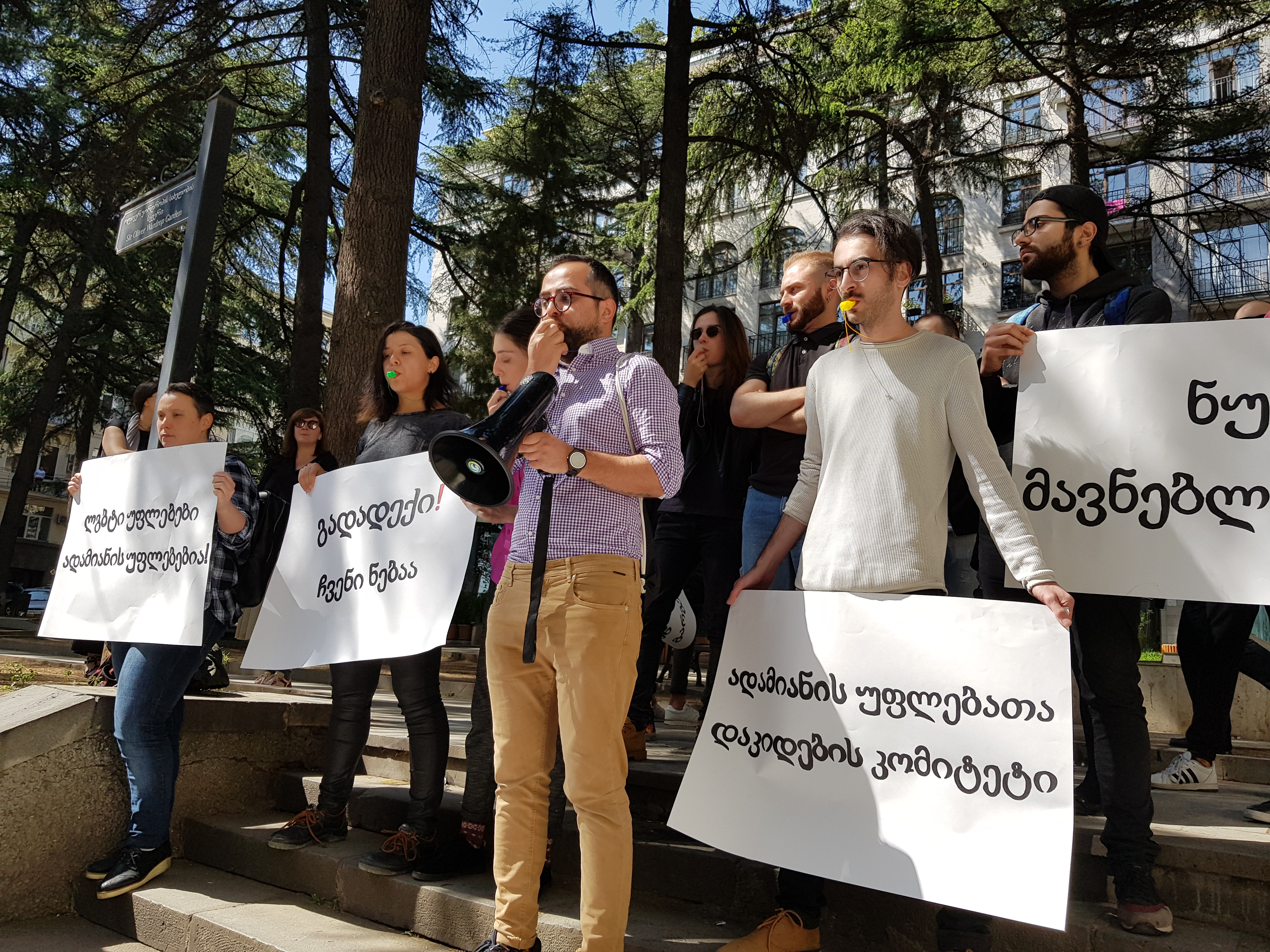
During the protest, several activists entered a meeting of the human rights committee where they demanded Kiladze explain why the committee had changed its mind.
In an emotional plea, activist Tamaz Sozashvili told MPs of the ‘privileges’ heterosexual decision makers had.
‘I was bullied at school for 12 years. I still hate to visit the place because every day it was terrifying, each day meant facing death. Today I cannot visit my parents in Kakheti [East Georgia], because it is dangerous. This is the difference between you and me. You will never, never understand this, you will never understand what it costs me to stand here and say this because it will cause problems for me,’ Sozashvili said.
[Read more about NGO’s call for Kiladze’s resignation on OC Media: NGOs call on Georgia’s Human Rights Committee head to resign after queer activists’ protest]
On 4 May, a broader group of 31 NGOs came together demanding Kaladze’s resignation, creating the Coalition for Equality.
The coalition said the committee’s reversal was ‘a continuation of the failure of the Georgian Parliament to recognise the rights of LGBT people’.
Their statement accused Parliament of continuously expressing openly homophobic attitudes and anti–human rights positions.
It cited comments from MPs accusing activists of ‘provoking’ the violent response to 17 May 2013’s queer rights rally, homophobic remarks during discussions of anti-discrimination legislation, and the committee’s 2014 initiative to amend the Georgian constitutional definition of marriage as being between a man and a woman.
The constitutional amendment was successfully adopted by 117 votes to 2 in September 2017.
[Read a first-hand account of 17 May 2013’s violence: 16–18 May 2013: the days of human tragedies]






